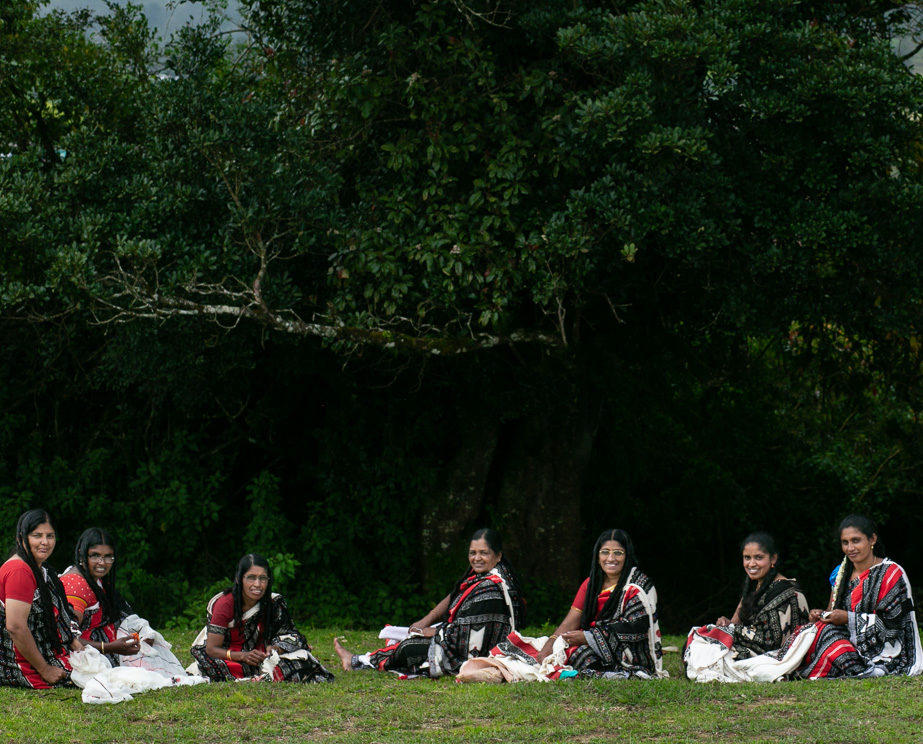Sometime during the winter of 2016, amidst a multi-year writing project about the Nilgiris and the people who lived there, I had an idea.
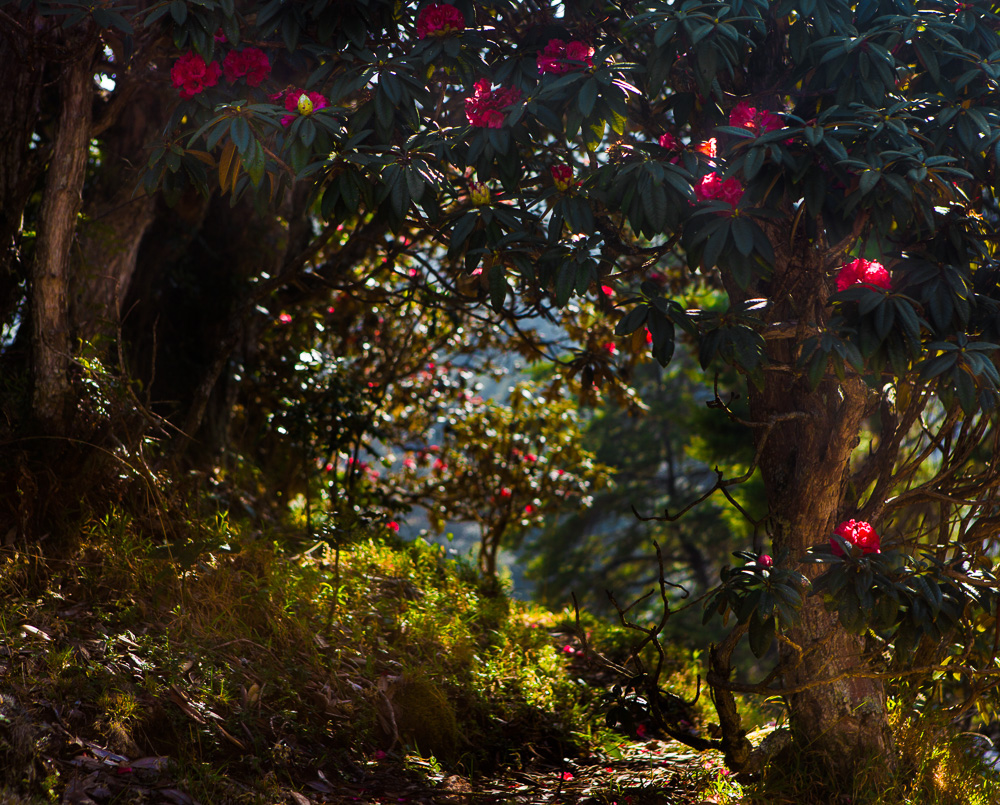
The indigenous communities that have lived in the hills for centuries played a crucial role in shaping my book, Soul of the Nilgiris. I made a deliberate effort to involve them in my creative process rather than just using them as a source of knowledge. Throughout my research, I interacted with the Toda community and was particularly fascinated by the work of the women artisans who practice the unique black and red embroidery.

During a brainstorming session with Cleber, my design collaborator in London, and Mutsin, a Toda elder I was deeply connected to, we explored ways to incorporate a stunning, handcrafted element into the design of the book. After months of trial and error, with enthusiastic support from the Toda women and Mr. Venkat from Pragati Offset in Hyderabad (printers and binders), we had our eureka moment.
The result was a completely new aesthetic: The GI-tagged Toda hand embroidery gracing the spine of the limited edition publication that marked the most crucial work of my life. This event was more than just a special binding; it was a breakthrough for all of us, particularly as it marked the moment when these traditionally bound artisans bravely ventured beyond the comfortable and conventional moulds of their art form.


In many ways, our Toda project at Coonoor&Co is a personal dedication to my beloved Mutsin, a Toda woman of substance and grit, passionately driven to embrace a future beyond the acceptable present. She guided me through the Toda landscape for nearly four years through the course of my research. She believed her community’s rare art form needed to be seen in a new light. Towards the end of her life, I had soul-searching discussions with her and Seeta, her daughter-in-law, about breaking new artistic ground for a new generation of Toda women and connoisseurs of contemporary art forms.
Mutsin passed on in October 2019, and though she is not with us to see the fruits of our multi-year, multi-dimensional projects, her legacy lives on in my book and in the brilliant work of our group of Toda women artisans at Coonoor & Co. Her desire to kindle a new fire in the coming generations will be a cornerstone of our endeavours in this unique vertical.
It would be two years and coinciding with the second wave of Covid, before Seeta and I reignited our conversations and experiments.
We began with the base “canvas”, identifying from many, many options, two exciting types of fabric with warp and weft count that were most conducive (even though not necessarily easier), to the thread counting technique. Since no embroidery frame is used, and the women count the thread with their fingers by merely stretching the base material, the right kind of weave was critical if we were to take the art beyond the confines of the coarse cotton and acrylic threads that had become the norm. Months and exhausting months of trial and error followed, working with new materials, searching for ethical weavers and vendors who resonated with the vision behind our project and most importantly, convincing the Toda artisans that we were safeguarding their future with our contemporary vision and inviting them into working with us as a team.
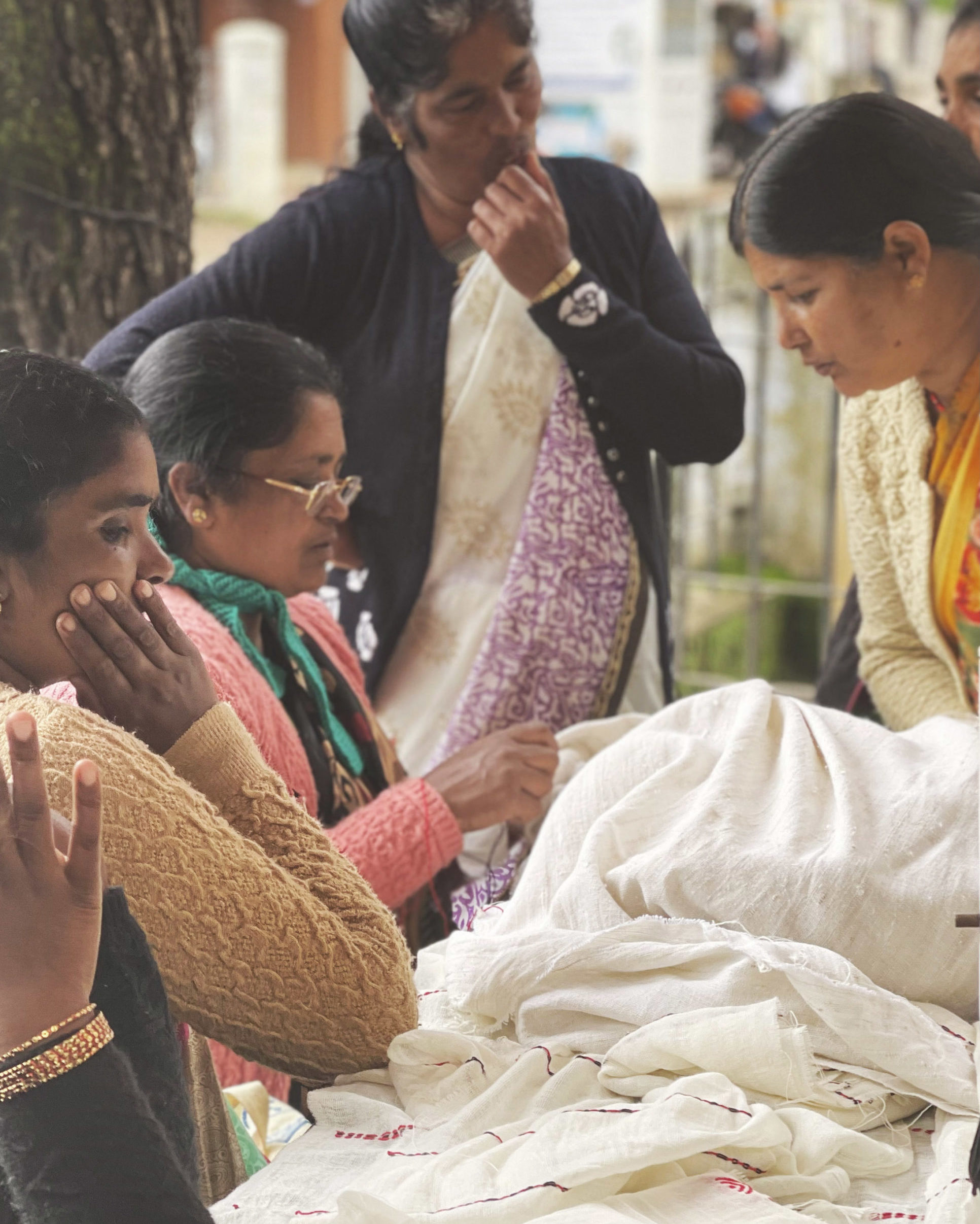
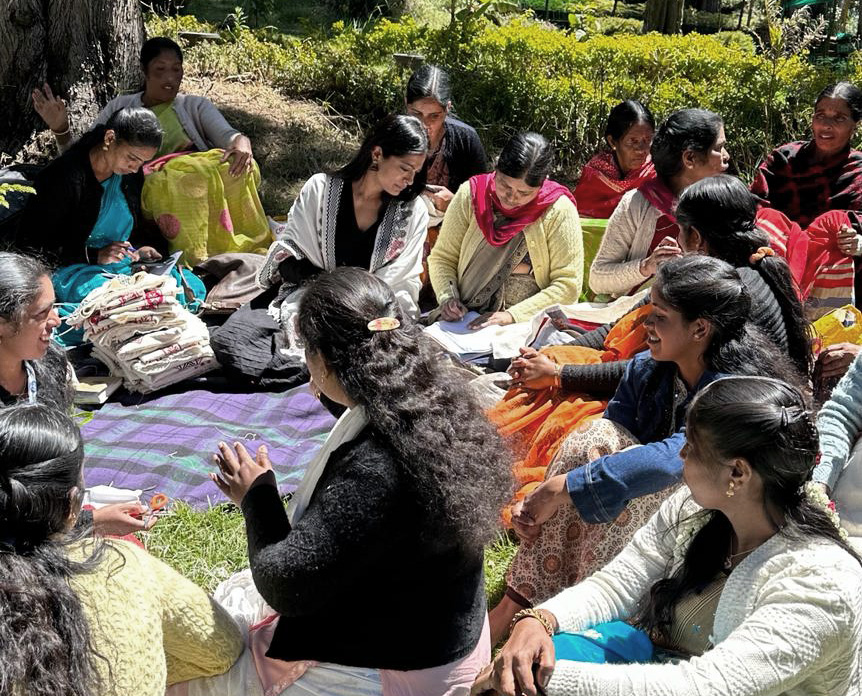
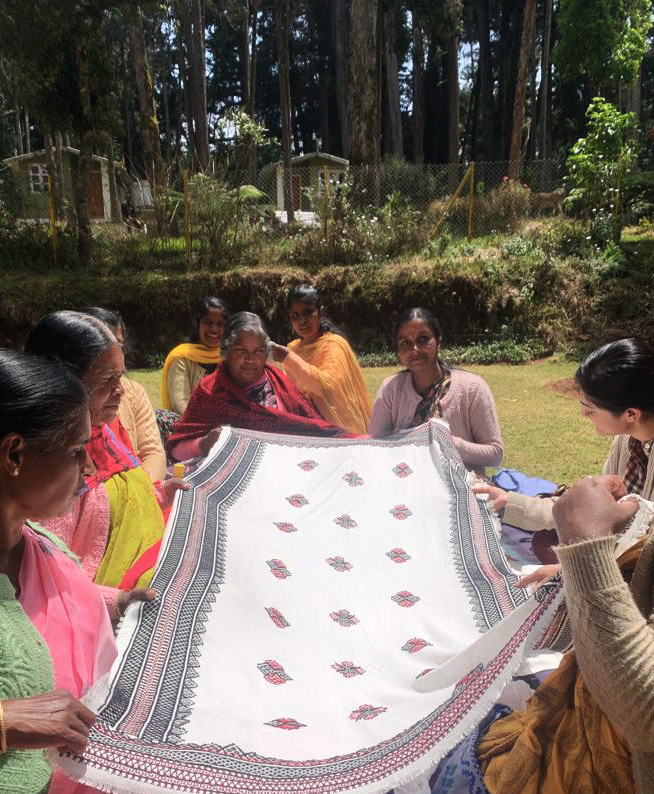
Today, as we launch the first range of a brand that we promise will be sustainable, ethical and socially impactful, I am grateful to the Toda community and my own team of strong, dedicated women artisans who are inspiring a new generation, led by Seeta, who has been an unwavering part of this project.
I look forward to continuing to share our onward journey with all of you.
With love from the Nilgiris,
Ramya
